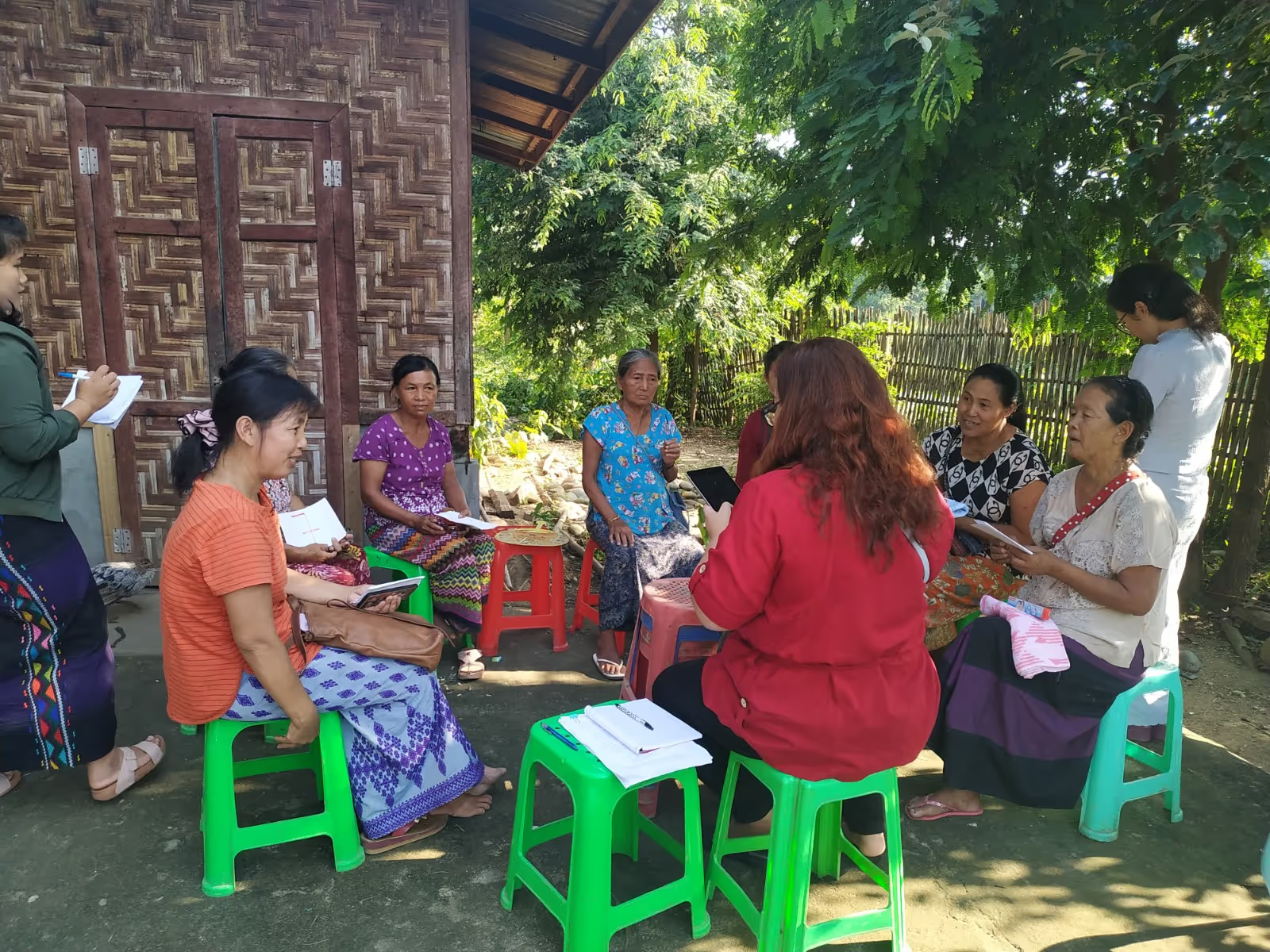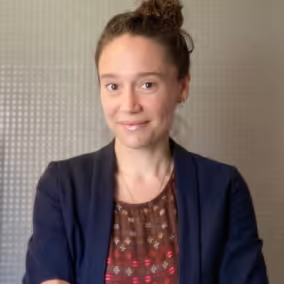Depression in the Time of Conflict: Evaluating Community-Based Models of Psychosocial Care in Myanmar

Project overview
What are the individual- and community-level effects of non-specialist psychosocial service delivery on mental health, social cohesion, and economic outcomes? What modes of psychosocial service delivery are best suited to humanitarian contexts?
Countries
Myanmar
Organisations
Innovations for Poverty Action
Partners
Local partners
Area of funding
Humanitarian Research
Grant amount
£478,802
Start date
01
July
2020
End date
31
July
2025
Project length (in months)
61
Funding calls
Topics
No items found.
Status
Closed
Project solution
This project offers [specific solution or intervention] to tackle [challenge]. By implementing [strategies, tools, or innovations], the project aims to achieve [desired outcomes]. The approach is designed to [specific actions or methods] to bring about meaningful change in [community, region, or issue area].
Expected outcomes
This project aims to achieve [specific outcomes], such as [measurable results, improvements, or changes]. The expected impact includes [benefits to the target community, advancements in research or innovation, or long-term effects]. By the end of the project, we anticipate [specific changes or milestones] that will contribute to [broader goals or objectives].
Principal Investigators: Alexandra Hartman (UCL), Giuseppe Raviola (Harvard Medical School), Jonathan Weigel (LSE) & Kyaw Zay Ya (Swiss Tropical and Public Health Institute)
Research Snapshot: Strengthening social cohesion through psychosocial interventions in Myanmar
Interventions for strengthening social cohesion (defined as the strength of relationships and the sense of belonging, trust, and mutual support among individuals and groups) are evaluated in conflict-affected Myanmar.
What did the study set out to achieve?
Mental disorders are the leading cause of morbidity worldwide, and yet up to 90% of people with common and severe mental disorders in low-income countries receive no treatment. The gap between morbidity and care is greater still in humanitarian contexts. Although community-based non-specialist models of care have shown great promise in closing this gap, the evidence base is limited on several critical questions.
This study asked, what are the individual- and community-level effects of non-specialist psychosocial service delivery on mental health, social cohesion, and economic outcomes in remote, conflict-affected areas? Second, what modes of psychosocial service delivery are best suited to humanitarian contexts, given both the burden of disease and operational challenges of working in fragile contexts?
The study addressed these questions in collaboration with local partners in Myanmar. The study, randomised at the village level, evaluated the impact of a 10-week psychosocial skills support programme (“group skills”) compared with a “group activity” programme of shared tasks (e.g. cooking, handicrafts, or environmental cleaning) without skills training, and a control group receiving no intervention.
What were the findings?
The study found that levels of mental distress were low at baseline, and there were no significant changes in mental health outcomes across the groups. However, both the group skills and group activity interventions increased interpersonal trust.
The group skills programme, which included structured psychosocial training and emotional expression, enhanced feelings of closeness and reduced participants’ sense of individual responsibility for local public goods – placing more expectation on community leaders. This shift in attribution coincided with decreased participation in local volunteering, potentially indicating a diminished sense of personal obligation for certain tasks normally done by leaders.
The group skillls programme also appeared to promote emotional openness, which may be a key building step in creating trust and closeness among participants that then leads to shifts in perceptions of political responsibility.
What does this mean for policymakers and practitioners?
These findings offer suggestive evidence that, in conflict settings where trust has eroded, psychosocial interventions, even without improving individual mental health, may help rebuild social relationships that underpin local governance.
Programmes aiming to strengthen social cohesion in conflict settings should consider integrating psychosocial skill-building to enhance emotional openness. While traditional mental health outcomes may not shift quickly, fostering group connections and shared responsibilities may help rebuild the social relationships that underpin local governance.
Policymakers and practitioners can leverage these approaches as a scalable, low-resource supplement to mental health care, especially in areas with limited services. Moreover, practitioners could invest in alternative mental health measurement tools that better capture resilience and well-being in contexts where stigma may suppress self-reporting.
No items found.
Project delivery & updates
Stay up to date with the latest developments from this project. Here, you will find details on what has been delivered, resources created, and regular updates as the project progresses. Access key documents, reports, and other materials to see how the project is making an impact.
No resources/updates have been published yet for this project. Sign up for our newsletter to stay informed about upcoming publications and updates!
Join our Newsletter
Resources
Research Snapshot: Strengthening social cohesion through psychosocial interventions in Myanmar
Research snapshot
LEARN MORELatest updates
No items found.
